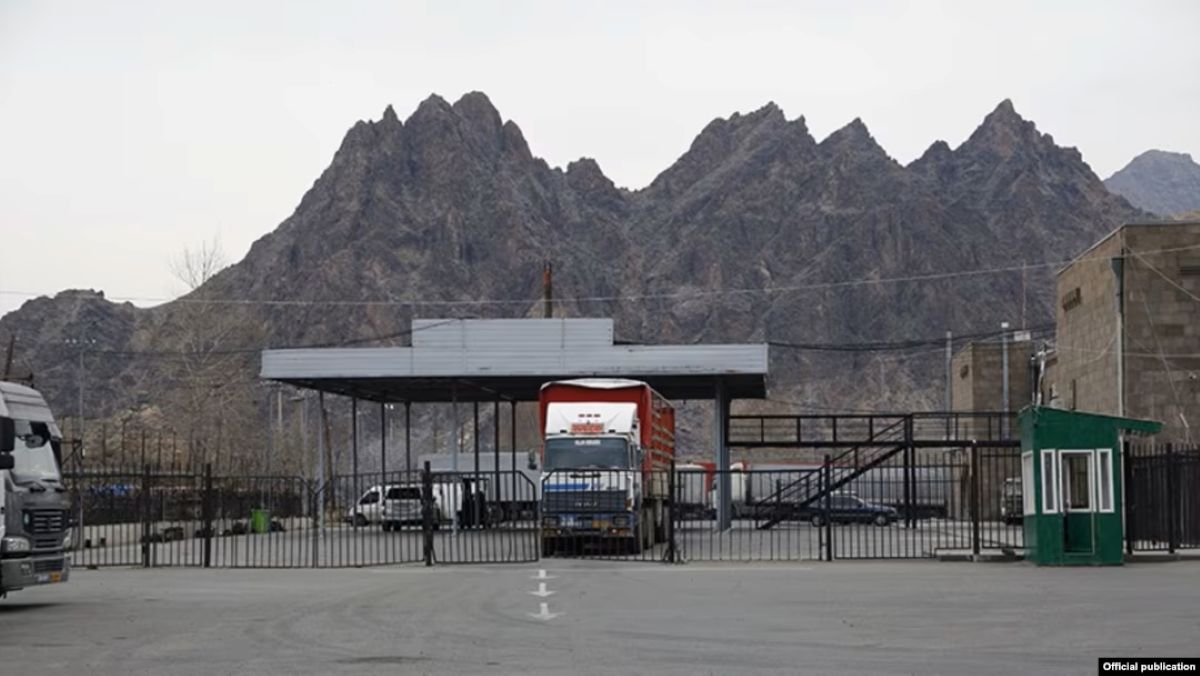Armenian genocide recognition bill passes first reading in UK House of Commons
Armenian genocide recognition bill passes first reading in UK
On November 9, the House of Commons of the British Parliament unanimously adopted a bill on the recognition of the Armenian Genocide. This was the first reading of the document, the second will take place in March 2022. Armenian expert circles are discussing why the British parliament took such a step and how likely it is that the bill will be approved by the House of Lords.
The Armenian Genocide is a massacre that took place in the Ottoman Empire in 1915. About two and a half million Armenians lived here. As a result of the killings and mass deportations, more than half of them died.
The tragic events of the beginning of the last century were recognized as genocide and condemned by influential international organizations, including the Council of Europe, the European Parliament, and the World Council of Churches. Among the countries that have recognized the Armenian genocide are Canada, Argentina, Switzerland, Austria, Italy, Belgium, France, Poland, Slovakia, the Netherlands, Russia, Uruguay, Greece, Cyprus, Vatican, Germany, Lebanon.
Turkey categorically rejects such a formulation.
- US President Biden uses word ‘genocide’ while talking about killings of Armenians in Ottoman Turkey
- Experts on the meaning behind Biden’s statement on the Armenian genocide
- Bundestag spoke the word “genocide”
- Dutch parliament recognizes 1915 killings of Armenians as genocide despite opposition from government
The bill
The bill was presented by Conservative MP Tim Lawton, who heads the United Kingdom-Armenia inter-parliamentary group.
The project invites the British government to officially recognize the Armenian genocide of 1915-1923, establish a procedure for commemorating victims, and stimulate awareness of these tragic events.
If adopted in the second reading, the draft will be considered in the upper house of parliament – the House of Lords. After approval by the House of Lords, the bill will enter into force.
Expert commentary
Head of the Political Department of the ARF Dashnaktsutyun Party Kiro Manoyan
According to Kiro Manoyan, despite the fact that the bill was passed without a single objection, it is difficult to say whether it will be adopted in the second reading.
The politician recalls that quite recently a similar resolution was also submitted to the Knesset, the legislative body of Israel.
Kiro Manoyan believes that the position of the US President, who uttered the word “genocide” on April 24, the day of commemoration of the victims of these events, created favorable conditions for wider international recognition. However, both the UK and Israel still have a choice.
“It is possible that both countries will decide to use this as leverage over Turkey, and then do their best to make the bill [in the UK] and the resolution [in Israel] fail. It is important to see what steps will now be taken by the local Armenian communities and by Armenia itself in order to achieve progress”, Kiro Manoyan said.
Turkologist Ruben Melkonyan
The expert claims that the UK has historically played a very negative role and caused great damage to Armenia in the diplomatic arena. In his opinion, having passed the bill on the recognition of the Armenian genocide in the first reading, Great Britain set the task “to prove its adherence to democratic values”:
“On the one hand, Great Britain is one of the most important countries in the world, its position on this issue is, of course, important. On the other hand, we must state that the interests of this country often coincide with the interests of Turkey and Azerbaijan. It can be said that Great Britain is an informal ally of Azerbaijan. […]
Great Britain often opposed Armenia, the Armenian issue, Armenian demands, including after the Second World War”.
Genocidologist Suren Manukyan
The expert says that there are no problems in Turkish-British relations, but there are problems in US-Turkish relations. And recent events speak of indirect pressure on Turkey from the United States, Suren Manukyan believes:
“The United States has already recognized the Armenian Genocide [the House of Representatives of the US Congress recognized the massacres of Armenians in the Ottoman Empire as genocide, but the resolution did not reach the discussion in the Senate – JAMnews], they can no longer use this issue as a club against Turkey. They are trying to do this through their closest ally, who needs support”.
The expert believes that after leaving the European Union, Great Britain needs the United States, since it is now facing both economic and political problems. The only country the UK can count on is the United States, its traditional ally.
Suren Manukyan notices US pressure on Turkey and on the Kurdish issue. He recalls that the United States has excluded several Kurdish organizations from the list of terrorist groups that were included there because of Turkey.
The expert recalls another example of pressure on Turkey from the United States, which took place earlier, in 2005. Then Poland recognized the Armenian genocide, and this was unexpected, according to Makunyan, even for those who dealt with this issue, since there were no signs from Poland:
“However, Poland is the closest US ally in the European Union, and in particular in Eastern Europe. Therefore, when Poland recognized the Armenian genocide, it was seen as a way of US pressure on Turkey through its ally”.
As for the likelihood of the final adoption or rejection of the bill on the recognition of the Armenian genocide in Britain, Suren Manukyan said:
“This is a means of pressure, they use it, but at the last moment they may not accept it”.
Toponyms and terminology used in the publications, and views, opinions and strategies they contain do not necessarily reflect the views and opinions of JAMnews or any employees thereof. JAMnews reserves the right to delete comments it considers to be offensive, or otherwise unacceptable.


















